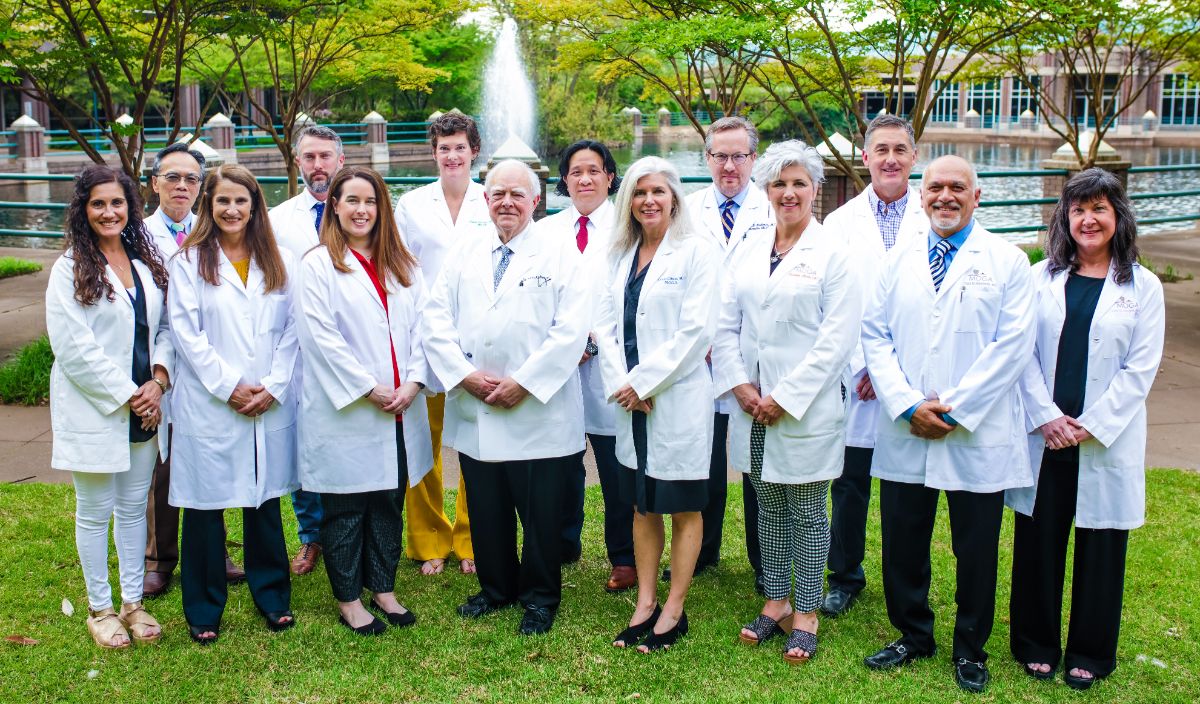Infertility can be a sensitive and emotional subject for those it affects, but it’s far from uncommon. Around 10% of both men and women of reproductive age in the United States have experienced fertility problems. Some of these issues are due to previous or existing health conditions, while lifestyle factors like smoking or alcohol can contribute to others. Here at MOGA, we can test for and treat infertility in various ways. Keep reading below for a closer look at how we can help women identify infertility—and overcome it!
How does infertility occur?
To successfully become pregnant, a specific sequence of events must be completed. This begins with ovulation, when a woman’s ovary releases an egg that then progresses into the fallopian tube. When their partner releases sperm during sex, it will make its way through the woman’s cervix and uterus, eventually reaching the egg already present in the fallopian tube. The sperm then penetrates the egg, fertilizing it before it arrives in the uterus. The endometrium (lining of the uterus) has already thickened in preparation for the fertilized egg embedding in the uterine wall, and the fertilized egg has begun developing into a fetus. If any part of this process fails, pregnancy will not occur.
What causes infertility in women?
Fertility problems can affect both men and women, but we’ll focus on women here. As noted above, problems with fertility can occur for a variety of reasons, including lifestyle factors like smoking, alcohol and drug abuse, obesity, and excess stress. A woman’s previous or existing health conditions can also affect her fertility. These may include endometriosis, tumors or cysts, Pelvic Inflammatory Disease, cancer, and diabetes. Age is another consideration, as the older a woman is, the more difficult it can be to achieve pregnancy.
Ovulation and fertilization are difficult to observe, which can make infertility in women hard to diagnose. About one-third of infertility issues can’t be attributed to either partner, with no underlying reason ever discovered. In cases where the cause is known, ovulation disorders tend to be the most common. These account for about 25% of all infertility cases, and unusual or absent ovulation. There are several potential causes for this, including the following.
Hypothalamic dysfunction: The pituitary gland produces two hormones every month to stimulate ovulation. If this production is disrupted, ovulation may not occur that month.
Polycystic ovary syndrome (PCOS): This disorder is caused by an imbalance of hormones with elevated male hormones. PCOS is the most common cause of female infertility.
Premature ovarian failure: This occurs when the ovaries stop producing eggs at a much younger age than the typical onset of menopause.
Some types of physical blockages can also cause infertility. Tissue damage in the fallopian tubes can cause blockages, as well as scarring from inflammatory or sexually transmitted diseases. Endometriosis is especially challenging where fertility is concerned, as the scar tissue associated with it can form blockages. This disorder can also lead to a general disruption of the implantation process.
When should a woman seek help for infertility?
Infertility is defined as a failure to conceive after one year of unprotected intercourse. Most women should consult a doctor after a year of trying to conceive, but some should see a specialist sooner. Women who are 35 or older should be evaluated after trying for six months to become pregnant, as there is a relatively rapid decline in fertility once she hits her mid to late 30s. To put this into perspective, a fertile woman has about a 20% chance of getting pregnant each cycle when she is 30 years old. By the age of 40, that drops down to about 5%.
Other examples of women who should see a doctor sooner in their infertility journey include:
- those who have absent or irregular menstrual cycles, which can be a sign that she is not ovulating normally.
- those who have a history of endometriosis, pelvic adhesions with scar tissue, or pelvic infections.
- those who have had a tubal ectopic pregnancy, pelvic infection, or need to reverse a tubal ligation.
- lesbian or single women who will requiring donor sperm to achieve pregnancy.
While it’s not an infertility problem, women who have had two or more miscarriages should also mention this to their doctor if they are planning to become pregnant again.
How is infertility treated?
There are several options for helping women struggling with infertility become pregnant and carry that pregnancy to term. Controlling lifestyle factors is often the first suggestion, as these solutions are usually quite simple, comparatively speaking. They include reducing stress, losing weight, improving diet and exercise habits, giving up smoking, and limiting alcohol intake.
Fertility drugs may also be recommended. The main function of these drugs is to simulate the effects of follicle-stimulating hormone (FSH) and luteinizing hormone (LH) in the body, both of which aid in conception. These drugs stimulate the pituitary gland that produces hormones or directly stimulate the ovary. Other fertility drugs work to mitigate conditions such as insulin resistance or the overproduction of prolactin, which can affect a woman’s ability to become or stay pregnant.
Reproductive assistance is available to women in the form of IUI and IVF treatments. IUI stands for intrauterine insemination and places healthy sperm in the uterus when a woman is ovulating. IVF, or in vitro fertilization, is a lab procedure where embryos are developed by combining harvested eggs and sperm. These are then inserted into the uterus once the embryo is ready.
Finally, surgical methods may be recommended or necessary when there are fibroid cysts, blockages in the fallopian tubes, or scar tissue present. These may also be needed if there is an irregular uterine shape. Minimally invasive surgery can help resolve these issues and may include hysteroscopy or laparoscopic surgical techniques.

Get to the bottom of infertility with the experts at MOGA
Infertility can stem from a variety of issues, but our expert team is here to help! If you’ve been trying to get pregnant for a year or more without success, a visit to Memphis Obstetrics & Gynecological Association, PC could give you the answers you need. With convenient locations in Memphis, Germantown, Bartlett, and Southaven, we’re here to provide compassionate care and successful solutions! Call today or request an appointment online by clicking here.


